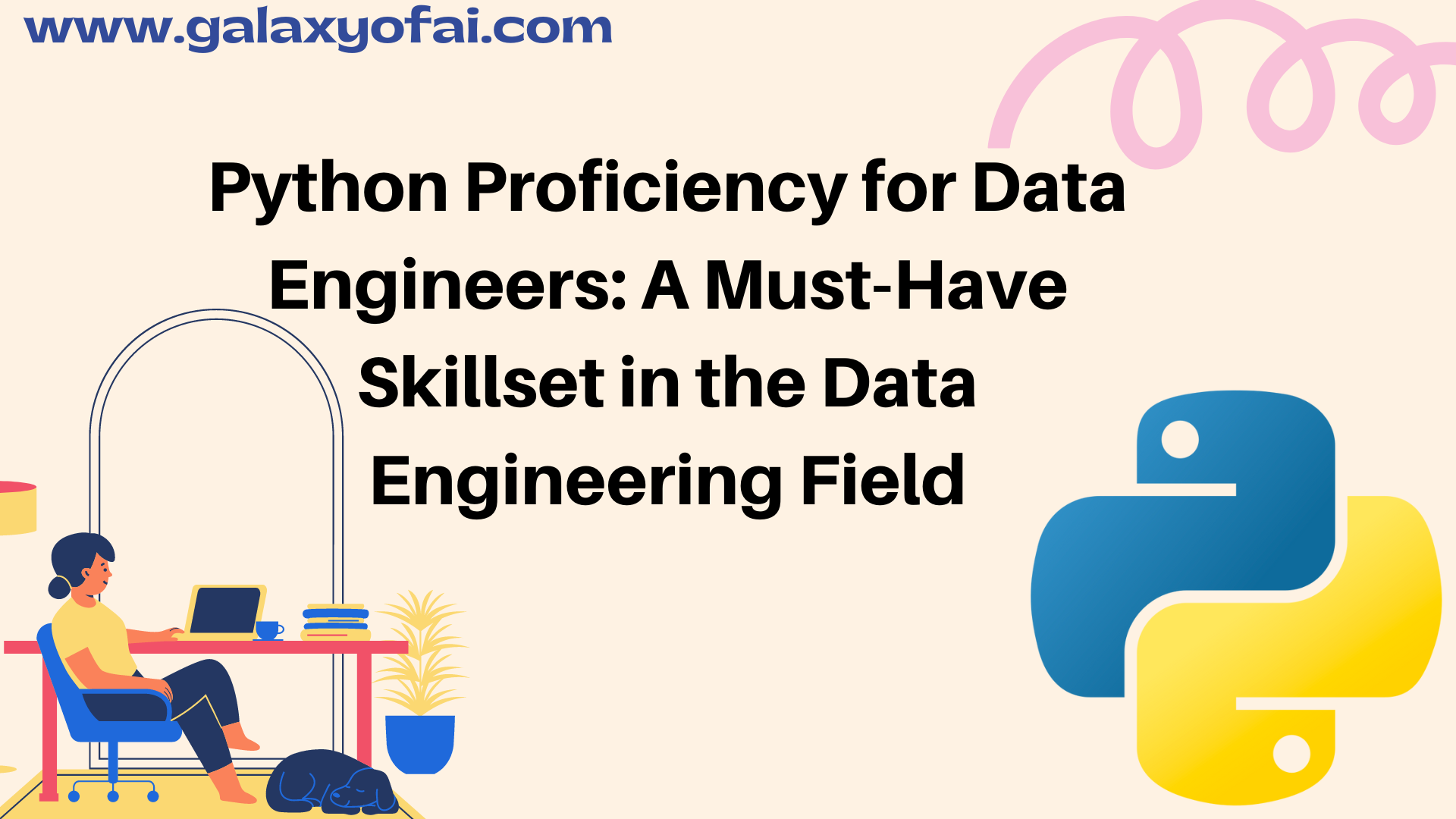Hello Learners…
Welcome to my blog…
Table Of Contents
- Introduction
- Python Proficiency for Data Engineers: A Must-Have Skillset in the Data Engineering Field
- Summary
- References
Introduction
in this post, we discuss about how much Python is required for the data engineers, Python Proficiency for Data Engineers: A Must-Have Skillset in the Data Engineering Field.
Python Proficiency for Data Engineers: A Must-Have Skillset in the Data Engineering Field
The amount of Python knowledge required for a data engineer role varies depending on the company and the specific responsibilities of the role.
However, in general, data engineers are expected to have a strong understanding of Python programming, including its data structures, algorithms, and libraries.
As data engineers, we should also be able to use Python to automate tasks, build data pipelines, and create data visualizations.
Here are some of the specific Python skills that are commonly required for data engineer roles:
Python Basics
- We should have a strong understanding of Python’s syntax, data types, control structures (loops, conditionals), functions, and file I/O operations.
Data structures and algorithms
- Data engineers need to be able to use Python to manipulate and analyze data. This includes understanding how to work with different data structures, such as lists, dictionaries, and sets. Data engineers also need to be familiar with common algorithms, such as sorting, searching, and clustering.
Data Manipulation Libraries
- There are a number of Python libraries that are commonly used for data engineering tasks. These libraries include Pandas, NumPy, and Scikit-Learn. Data engineers need to be familiar with these libraries and how to use them to perform tasks such as data cleaning, data transformation, and machine learning.
- Familiarize yourself with popular Python libraries such as Pandas, NumPy, and Dask, which are commonly used for data manipulation, cleaning, and transformation tasks.
Automation
- Data engineers often need to automate tasks, such as data collection, data processing, and data analysis. This can be done using Python scripts or Python-based tools, such as Airflow and Luigi.
Data pipelines
- Data engineers need to be able to build data pipelines. Data pipelines are used to move data from one system to another. They can be used to automate the process of collecting, cleaning, transforming, and analyzing data.
Data visualization
- Data engineers often need to create data visualizations. Data visualizations can be used to communicate the results of data analysis to stakeholders. Python has a number of libraries that can be used to create data visualizations, such as Matplotlib and Seaborn.
SQL Integration
- Python is often used in conjunction with SQL databases. Understanding how to connect to databases using Python libraries like SQLAlchemy and execute SQL queries is important for data engineers.
Data Processing Frameworks
- Knowledge of data processing frameworks like Apache Spark or Apache Beam is valuable for handling large-scale data processing and parallel computing tasks. These frameworks are commonly used for distributed data processing.
ETL (Extract, Transform, Load)
- Data engineers are responsible for designing and implementing efficient data pipelines. You should be familiar with Python-based ETL tools like Apache Airflow or Luigi, which enable you to define and schedule complex workflows.
Data Serialization Formats
- Understanding different data serialization formats, such as JSON, CSV, XML, and Parquet, is crucial for data engineers. Python provides libraries for reading, writing, and manipulating data in these formats.
Data Warehousing
- Familiarity with data warehousing concepts and tools like Apache Hive or Amazon Redshift, and how to interact with them using Python, is beneficial for data engineers who work with large-scale data storage and retrieval.
Version Control and Collaboration
- Proficiency with version control systems like Git and knowledge of collaboration platforms like GitHub or GitLab are essential for working effectively as a data engineer in a team environment.
In addition to these specific skills, data engineers also need to have a strong understanding of the principles of data engineering. This includes understanding the different types of data, the different ways to store data, and the different ways to process data. Data engineers also need to be able to work with a variety of data sources, such as databases, files, and APIs.
If you are interested in a career in data engineering, it is important to start learning Python as soon as possible. There are a number of resources available to help you learn Python, including online courses, books, and tutorials. Once you have a good understanding of Python, you can start working on projects that will help you develop your data engineering skills.
Summary
Remember that Python is just one of the many tools and technologies used by data engineers. It is also important to have a solid understanding of databases, distributed computing, cloud platforms, and other relevant technologies in the data engineering field. Continuous learning and staying updated with the latest advancements in the field will help you enhance your skills as a data engineer.
References
This content is generated by AI tools, after that we do some changes to that content.
